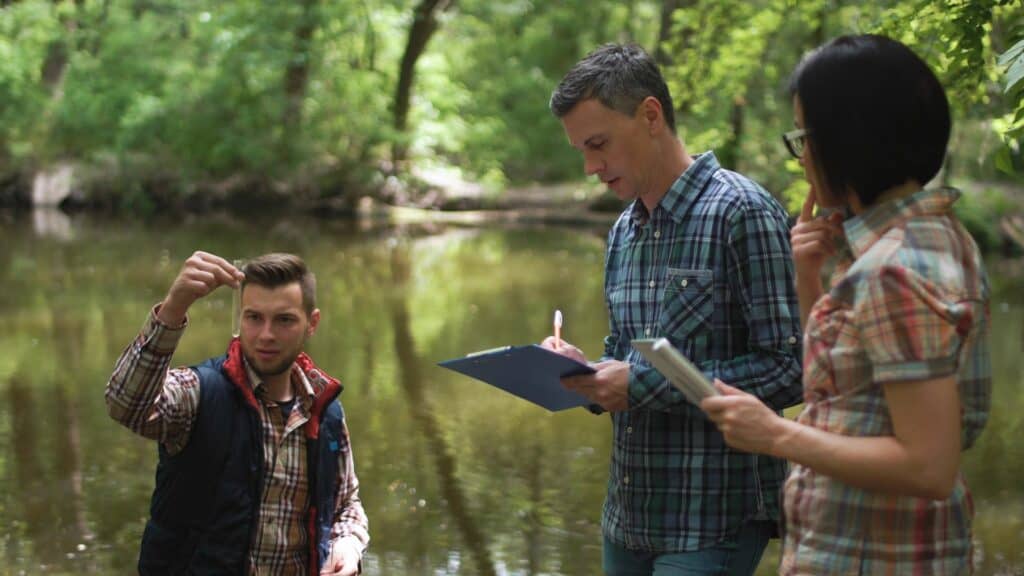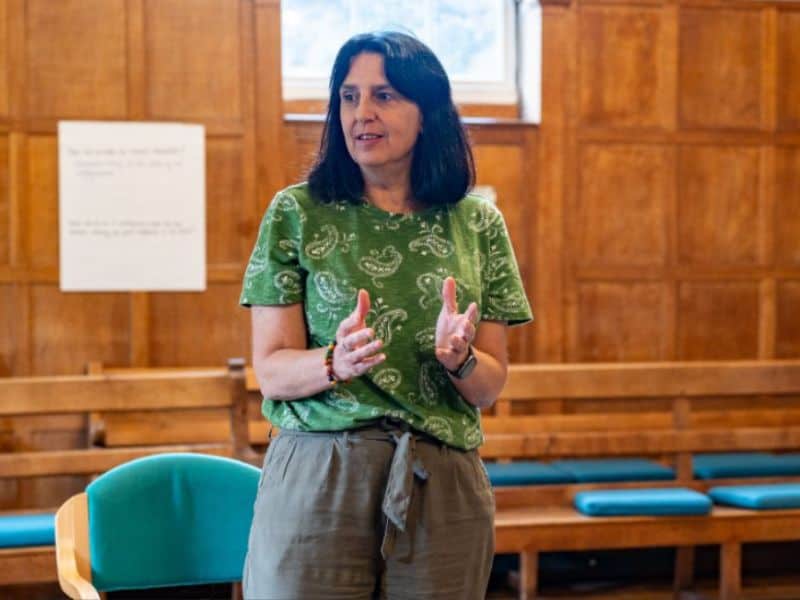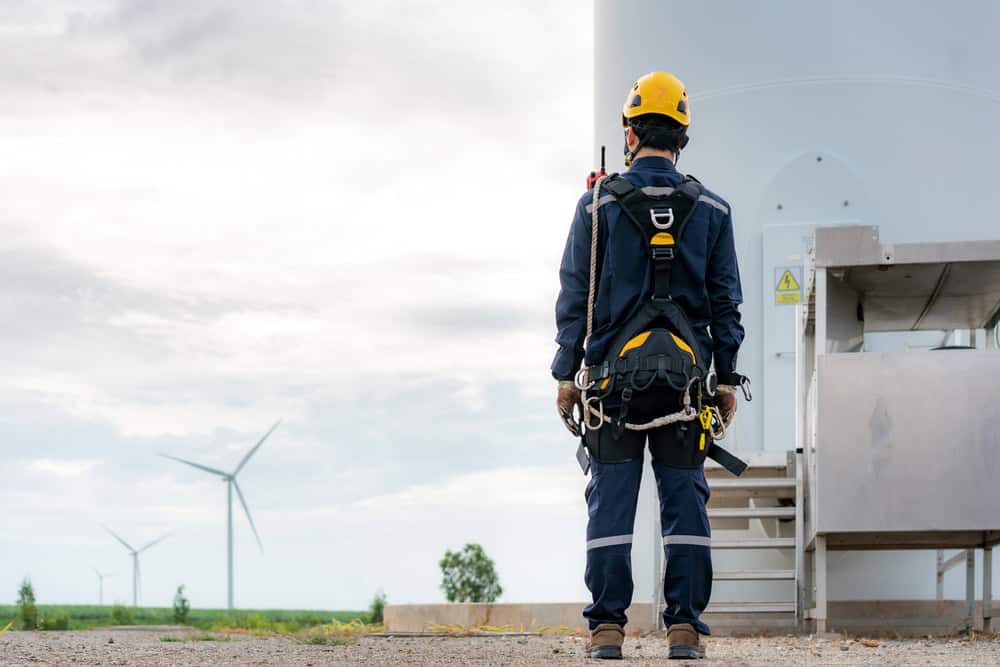There are many thousands of young people who have graduated from university with their hard-earned degrees, and now want to go out into the world and pursue a career. So what is a graduate job in sustainability?
Graduate schemes can get your foot in the door at a company that offers a vast range of opportunities and guidance; equipping you with the hands-on experience needed to help tackle some of the world’s most pressing challenges. Whether helping governments protect and enhance the environment, or even managing hazardous nuclear waste, there are numerous different career paths that graduates schemes can offer.
Working for nature
Many of these schemes are accredited by IEMA – which provides continuous personal development, resources, mentorship and whole range of additional benefits – and typically last one to five years.
One such programme is the Environment Agency’s Environment and Science Graduate Training Scheme, which sees trainees work to create a better place for people and wildlife. Abi Lerway started the scheme last September as an environmental assessment officer after studying geography at the University of Leeds; driven by her “massive fascination” with water bodies and climate change.
“I did my dissertation on flood management, so when I saw the graduate scheme advertised, I just thought this is a full-circle moment for me,” she says. “I had to give this a go, because it intertwines with flood risk management and the impacts of climate change on water bodies.”
That’s not to say that it wasn’t an unnerving experience at first. “Coming into such a huge organisation can be quite daunting, especially when I found that so many people have worked here for so long and are incredibly knowledgeable, it’s almost unfathomable,” she explains.
“But it’s such a great opportunity for learning and development, because they’re so understanding and ensuring that we have constant opportunities. The nature of our work is so interesting, and there’s always someone we can speak to and learn from – coming out of university, you’re ready to grab every opportunity you can and run with it.”
It has been a similar experience for Abbie Loihle, who also started the scheme last September after studying zoology at the University of Manchester. “A lot of similar schemes or jobs often required something like geography, so I was really happy to see the Environment Agency were welcoming people of all disciplines.”

They have both been exposed to different teams to support their learning, and have been involved in numerous different projects; going out to sites to conduct environmental assessments and provide nature-based solutions to various challenges.
“It’s very much a consultancy role, where we’ll go out, and look at the environment as a whole to consider the risks and opportunities,” Loihle explains. “We’ll look at invasive species, protected species or the quality of the water body, and will advise on how we might implement biodiversity net gain, or ask how we can improve the area for the local community? Can we add a park? It’s really balancing risk and opportunity.”
Going nuclear
With the UK government earlier this year announcing the biggest expansion of nuclear power in 70 years – which it hopes will supply 25% of energy by 2050 – managing nuclear waste is going to be a growing concern for sustainability professionals.
The nuclear site Sellafield on the coast of Cumbria represents one of the most environmentally challenging facilities in the world, focused on nuclear waste processing and storage and nuclear decommissioning.
After obtaining a bachelor’s degree in environmental and resource geology from the University of Manchester, Sam Cordingley, PIEMA, joined Sellafield Ltd’s IEMA-accredited graduate scheme and has been at the company for almost five years.
“After I finished university, I was looking at various schemes, and I came across Sellafield, which instantly grabbed my attention, and once I started digging into it, I thought this looks pretty cool,” he explains. “There is a massive amount of varied work – some very interesting stuff.”
Candidates take part in at least three secondments during the two-year scheme, and the final eight months are a free reign for the graduates to identify areas of the business that interest them.
“I came through on the environmental graduate scheme, but there is also safety, engineering, finance; various disciplines that the company needs to have,” Cordingley says. “We get put on the placements that give us a good exposure to the complexities of working on the nuclear site.”
He explains how continued development is extremely important in reducing the environmental impact of Sellafield, so there is plenty of support from individual mentors and line managers.
“It is very much like an actual job, rather than a training scheme. There is a lot of training involved, but you’re expected to do your job and to do it well. So there are times where it’s stressful, as with any job, but the leads of the graduate schemes and your line managers are very supportive, because they know the work is massively complex, and they want to make sure that you’re given the opportunities to develop and the support that you need.”
Nuclear power and its role in the UK’s energy mix is highly contentious among environmental professionals, with Cordingley choosing to work in high-level strategy around the future of the sector.
“The biggest issue that nuclear faces is the cleanup and dealing with the waste that’s generated at the source because it’s quite unpleasant stuff, and we need to find a way to dispose of it that’s appropriate,” he says. “It’s an ever-changing challenge, and that is one of the best parts about Sellafield – you need to adapt and think in new and innovative ways to deal with a historic issue, while following modern rules.”

Taking the next step
Lerway, Cordingley and Loihle are all working towards chartership with IEMA, and the Institute’s accredited graduate schemes have been an ideal place for them to start their careers, although they do have some practical advice.
“It’s so easy coming out of university to feel really overwhelmed, and this massive sense of imposter syndrome, and think ‘oh my gosh, I can apply to this, and I can even get it, but do I deserve it’?” Lerway says. “You just need to really trust in yourself and go for it and trust that you’ve got this degree and you’re applying for this role because you have worked hard for it, and don’t put yourself down. Have the confidence, and just go for it.”
Cordingley, however, urges potential candidates to really do their research before applying. “We’ve got a massively complex history at Sellafield, and we do a lot of very complex stuff now in the present day,” he says. “You may have an idea of what environmental management is in your head at the time of applying, and chances are there will be an area of the business that does exactly that, but your general day-to-day work may be very different, so do some research and make sure you fully understand what the company is all about.”
The sustainability sector is among the least diverse professions in the UK, and Loihle believes graduate schemes could help break down barriers. “People can be put off by so many different factors, but we need a sector with people who think differently and from different backgrounds,” she says. “I’ve been really lucky that I was considered on the scheme with my zoology background, but we need new ideas, so don’t be scared and just go for it.”
This is a Green Careers Hub article written by Chris Seekings, Deputy Editor for Transform at IEMA.
Specific details and requirements for the above graduate schemes can be found here:
Image credit: Shutterstock
Related articles

How to build a sustainability team that delivers

Transferable skills: essential sustainability competencies to master

